WORLD REPORT • CABO DELGADO
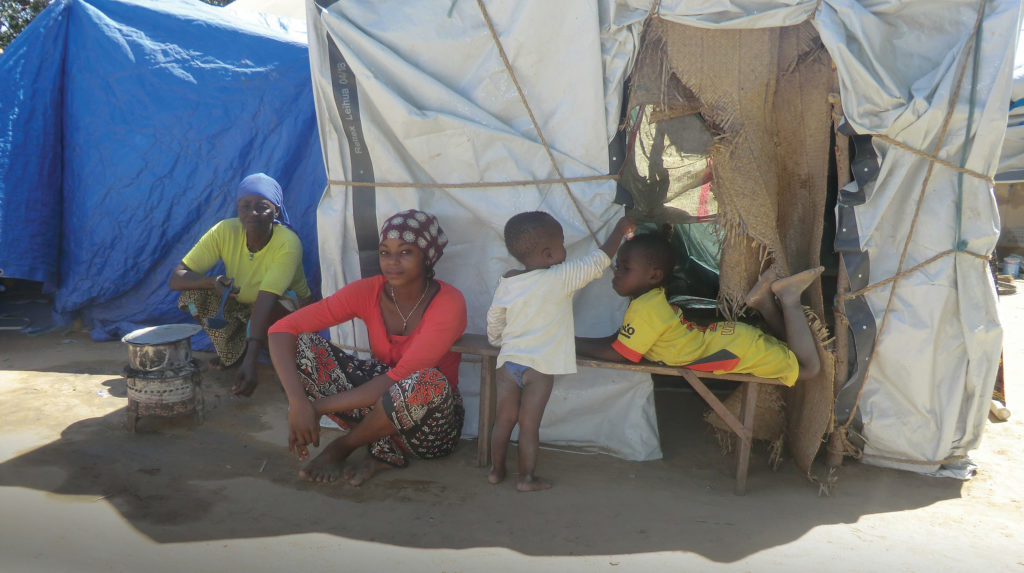
From Promised Land to Hell
There is no military solution to the conflict which has exploded in the gas-rich northern province of Mozambique since 2017. It will end only by addressing its root causes, among them, extreme poverty, unemployment, lack of health and education services, and lack of water supply
BY Thomas Selemane | political economist, Maputo, Mozambique (thomselemane9@gmail.com)
THE NORTHERN Mozambican province of Cabo Delgado has shifted from a promised land or El Dorado, which every Mozambican citizen and business dreamed of, to a hell that the country and investors are facing. There are currently more than 2 000 deaths and more than 800 000 displaced persons, according to the United Nations High Commission for Refugees (UNHCR). Armed attacks by unknown insurgents have transformed this natural gas-rich province into a war zone where the national army fights bandits who aim to control human and drug trafficking in the area. The insurgents, locally called Al Shabab, and connoted with radical Islamic groups, are said to be operating in other African countries such as Somalia where they fight for the establishment of an Islamic State (ISIS). The war began with what, in 2017, appeared to be a simple attack on a police station in the district of Mocímboa da Praia.
Behind the insurgency
Among the causes of the insurgency, the Mozambican government has pointed to the existence of huge reserves of natural gas in the district of Palma, where the French multinational, Total, and the Italian ENI operate. There is an investment of US$25 billion, an attraction for armed groups that intend to make gas exploration unfeasible, and in this way, make Mozambique’s development unfeasible. Nevertheless, no gas infrastructure has been attacked since the beginning of the war, just a few vehicles carrying workers subcontracted by oil companies. In turn, several research centres have been unanimous in insisting that extreme poverty, unemployment, lack of health and education services, and lack of water supply systems are factors that fuel the revolt of young people who join the insurgents.
Alongside the high number of deaths and displaced people, human rights violations in Cabo Delgado have drawn the attention of the Mozambican and international community. Public opinion has reacted with shock and disgust to videos and images circulated on social media, portraying alleged terrorists imprisoned, tied with ropes and being tortured by men dressed in the uniform of the Armed Forces of Mozambique (FADM, acronym in Portuguese). Amnesty International (AI) and Human Rights Watch have condemned the inhumane way in which the FADM deal with suspected terrorists, calling for independent investigations on those allegations. The Mozambican Government has not accepted them and has denied the involvement of the military in human rights violations.
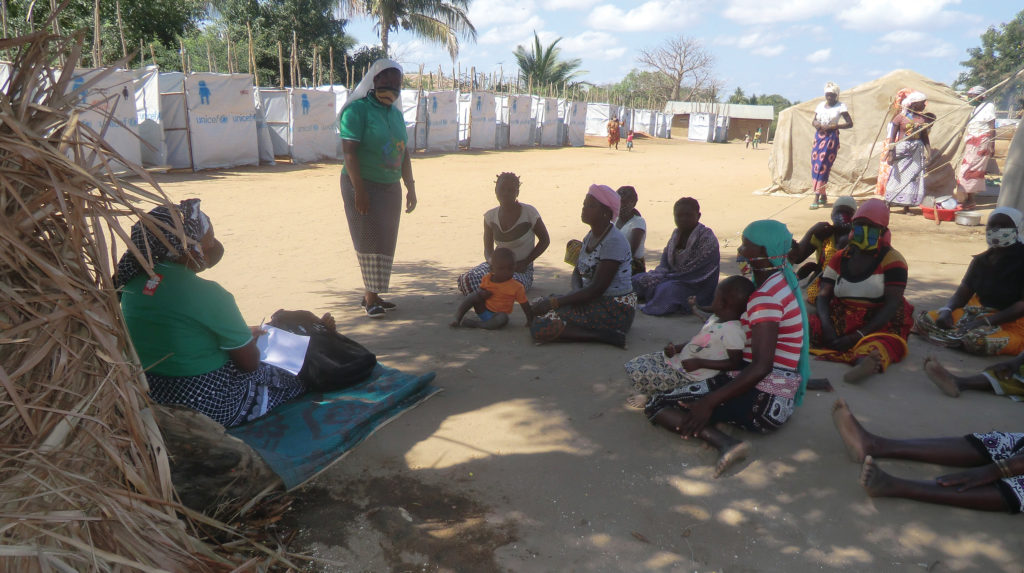
Human rights violations and ban of journalists
The most shocking of all the videos indicting human rights violations was one that circulated in mid-September 2020, where a group of five men armed with machine guns, dressed in Mozambican army uniform, beat up a naked pregnant woman, Paulina Chitai, 48 years old, before murdering her at close range with 36 gunshots, claiming she belonged to the Al Shabab intelligence.
In August 2020, Pope Francis called on the world to help resolve the conflict in Cabo Delgado. He even offered 100.000 Euros to assist in the reconstruction of social infrastructures of Cabo Delgado. The money was used to build health facilities in the devastated province.
It was only after much insistence from the national and international community, in September 2020, that the Mozambican government has agreed to finally ask for international support to fight the insurgents. The delay by the Mozambican government in engaging the international community has been interpreted as a sign of the difficulty that the ruling party Frelimo has to deal with some of its members who might be involved in the conflict. The Southern African Development Community (SADC) announced, during the summit of its 16 members in Maputo on 23 June, that they will deploy a military force to help the Mozambican government to combat the terrorists. Two previous conferences had failed because the Mozambican government argued that the deployment of foreign military forces had the potential of escalating the war instead of helping in stopping or controlling it.
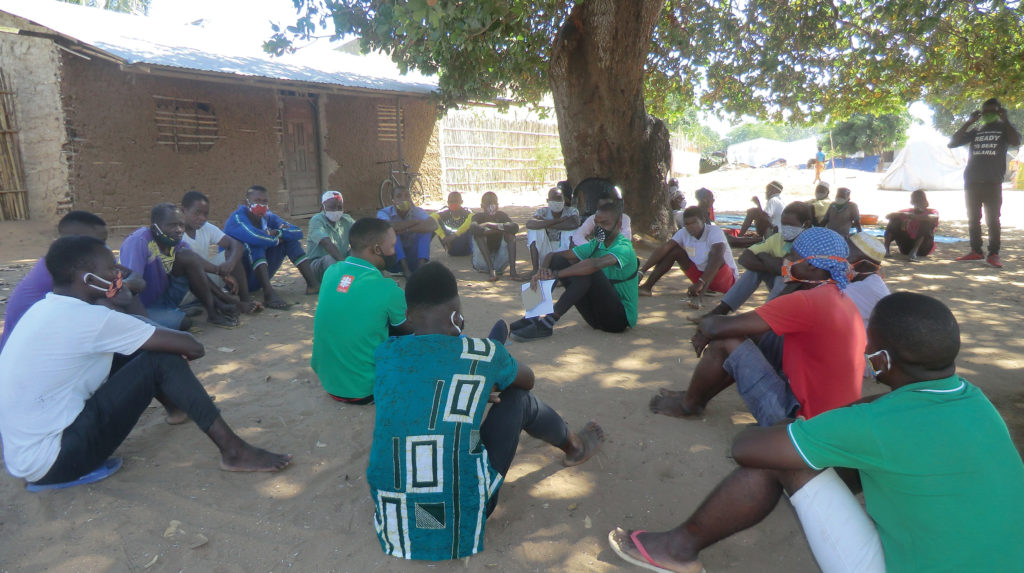
Another worrying feature of the Cabo Delgado terrorist attacks is that Mozambican authorities do not allow the media to work freely in the war zone. Since the beginning of the war, at least two journalists have been detained and charged with crimes of treason and espionage. Although they were both freed, their cases remain in court. Another journalist from Palma community radio, Fernando Mbaruco, has been missing for more than a year. The last two years have been characterized by a lack of media coverage of the Cabo Delgado war. The only exceptions were the trips with a group of journalists from different newspapers and television channels, including the British Sky News and the Radio Television Portuguese, organized by the government. The only local media who make the effort to cover the insurgency are the weekly newspaper Savana and the daily Carta de Moçambique. Besides those, there is an almost total control of the narrative. Their objective is to avoid the denouncement of human rights violations by the government army and their involvement in looting private properties. This objective is not always achieved as most citizens and some soldiers often film scenes of abuses and post them on social media.
The Mozambican government has used a group of South African mercenaries from Dyck Advisory Group (DAG) to fight against the terrorists in Cabo Delgado. The results? DAG failed to stop the insurgency. Prior to DAG, there was another group of mercenaries, the Russians of the Wagner Group and the Americans of Blackwater of Eric Prince. The latter are famous for their involvement in the wars in Iraq and Libya.
End of the war
Maputo-based think-tank, Observatório do Meio Rural (OMR), affirms that ending the Cabo Delgado war requires elite pacts between the oligarchs and the big men contenders in Cabo Delgado and a similar pact in the military. This implicitly recognizes that the big men in Cabo Delgado must be allowed to profit from resources and big men in the military must continue to profit from commissions and contracts, but that enough money must be released to solve local grievances about jobs and to allow soldiers to be fed and be adequately equipped, veteran journalist Joe Hanlon has reported in his Mozambique News Reports & Clippings.
The international community follows the Maputo narrative that the insurgency is a foreign terrorist intervention and has committed to provide military support—whether through short-term training, logistical support and a field presence—and devalues, to please the government, the structural causes of conflict that cannot be resolved militarily. The structural causes include a combination of various factors such as poverty, lack of basic water and electricity, unemployment, radicalization of youth Muslims, and human and drug trafficking.
According to the specialist Michael Hagerdon, in an analysis published in the Portuguese daily newspaper Público, there are numerous examples of the ineffectiveness of such interventions worldwide, ending up with war for years, to the detriment of the local population. Only an action at the level of the real engines of the conflict, which gives young people a minimally acceptable prospect of the future, can lead to the desired peace. For the time being, priority should be given to the efforts to provide decent living conditions for the more than 800 000 displaced people today.
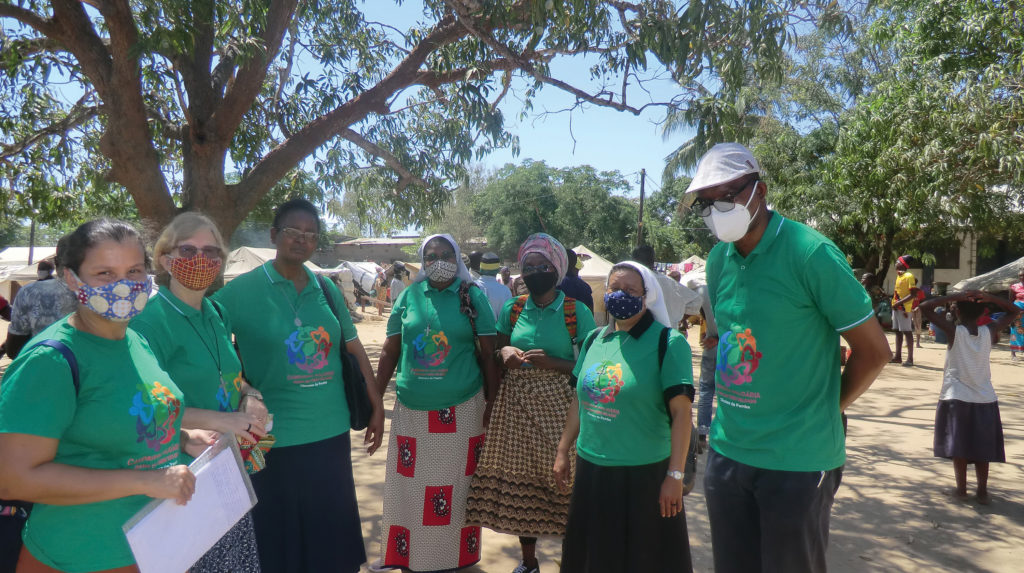
Preventing a military escalation
Hagerdon lists a number of seven actions that could prevent the escalation of the Cabo Delgado insurgency. Firstly, he points out the need of prioritizing humanitarian and emergency aid. “The immediate survival of internally displaced persons must be ensured, with a minimum of health care and education for children. However, it is necessary to avoid the consolidation of refugee camps in neighbouring districts and provinces in the conflict zone, as well as the instrumentalization of the use of aid by the Frelimo government,” he suggests.
The immediate survival of internally displaced persons must be ensured.
Secondly, it would be to protect the rest of the population in conflict-affected districts. The idea is that rather than just attacking insurgents and securing foreign investments, properly prepared Mozambican security forces should focus on protecting the population and, to that end, draw on the expertise of local militias, which are trusted by the population. This would also allow young people to be involved in the fight against insurgents by integrating them into these militias.
Thirdly, there must be a negotiation between the government and local provincial leaders and those who profit from the conflict. Hagerdon notes that “there are those who take advantage of the Cabo Delgado conflict and have no interest in ending it, as this would also mean the end of their income in the shadow economy, for example, in the local trade in timber, precious stones, ivory and drugs. It is difficult to disentangle which side these local elites are on, but names from both Frelimo and influential local families, generally from the Maconde ethnic group, are known. These actors need to be involved in solutions at the local level, as they can frustrate all efforts for peace.”
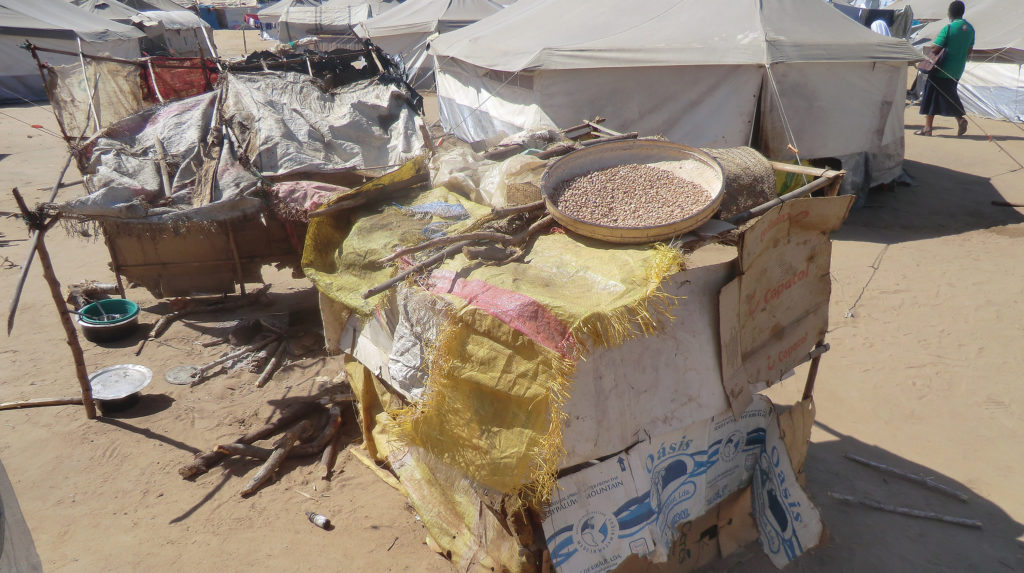
The fourth action would be to negotiate with insurgents. It is repeatedly asserted that negotiating with insurgents is not possible because they ‘have no face’ to the outside world, they have no leaders. However, many reports by refugees state that most of the insurgents are known, are ex-village members, and maintain contacts. The best example is the current humanitarian aid for refugees in Chitunda camp, where insurgents are not preventing local volunteers from operating around Palma district, the most affected by the insurgency. It is therefore necessary to identify mediators who are recognized and find local solutions acceptable to both parties.
The fifth action is to prevent new recruits. Short-term alternatives must be offered to young people living on the periphery of conflict and beyond. For example, through ‘cash for work’ programmes, rehabilitation of social infrastructure, soil and water conservation, erosion control, reforestation and road construction, among others. Local NGOs, socio-culturally anchored, should have a relevant role here. Its members are known, they enjoy the trust of the population and there is social control.
The sixth action is to ensure a credible amnesty programme for insurgents who have not committed serious crimes. Nevertheless, before returning to their home communities, they should go through training camps with the possibility of carrying out activities for young people, including sports, internet and civic activities, co-ordinated by local informal leaders who are trained by experts. Allowing them to return to their home communities without being discriminated against, would be a strong incentive to abandon the war. Such an amnesty programme would have to be independently controlled.
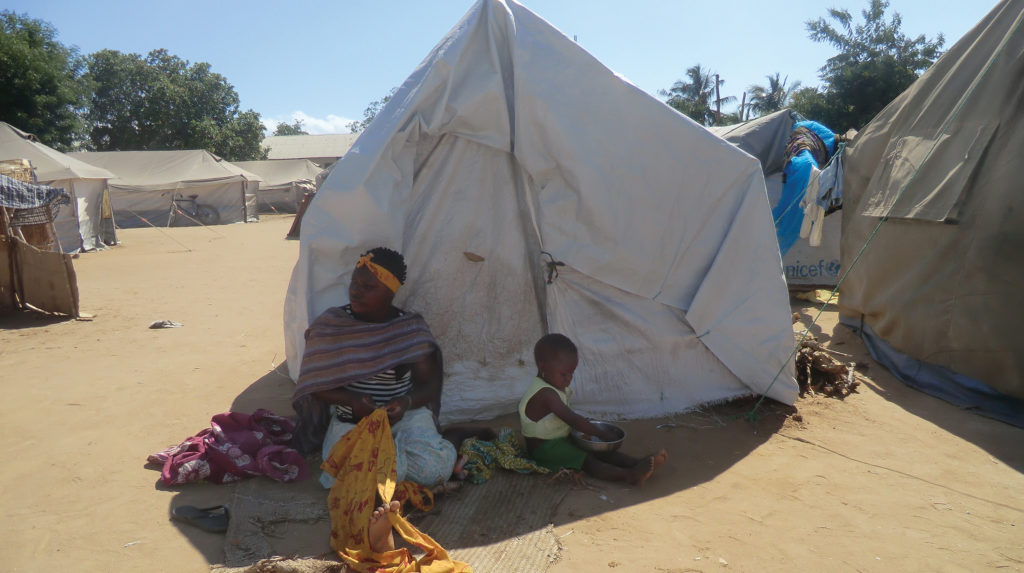
International community
Finally, the international community, namely SADC, the African Union and the European Union should demand from the Maputo government an immediate and transparent explanation of what happened in Palma and the condemnation of those responsible. Until that explanation is given, the US and Portugal should suspend military training activities.
However, even the implementation of these measures will not be successful if there is no political commitment on the part of the Maputo government to effectively improve the situation of the population of Cabo Delgado.
Several national and international studies, such as the ones by OMR, AI and Chatham House, point out that while the prevailing paradigm of ‘counter-terrorism’ focuses on the concept of global jihad and not on the corrupt and repressive state, (which does not provide social services and guarantee the security of its citizens) the conflict will drag on and lead to more violence and suffering for the affected population. The task of all Mozambique’s bilateral and multilateral partners is to put pressure on the Maputo government in this matter, and not to subscribe to its narrative of international terrorism.
While national and international organizations continue to argue against what are the real motives of the Cabo Delgado war, and how to better handle it, the natural gas-rich province has shifted from a promised land where milk and honey would abound, to a hell where death, violation of human rights and destruction of public and private infrastructure abound.
